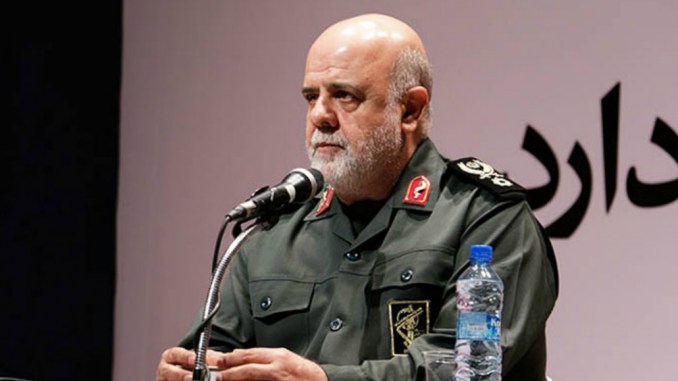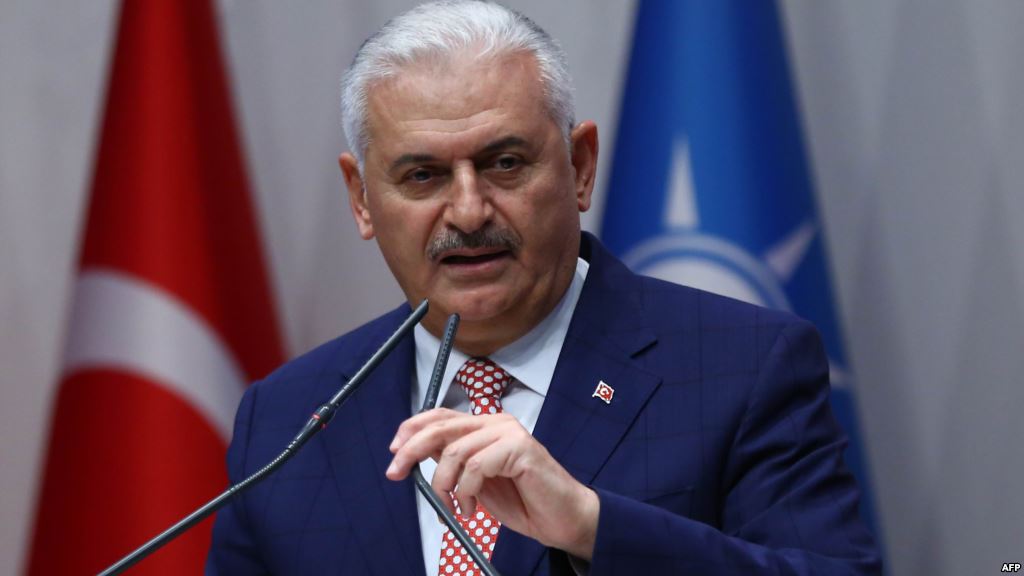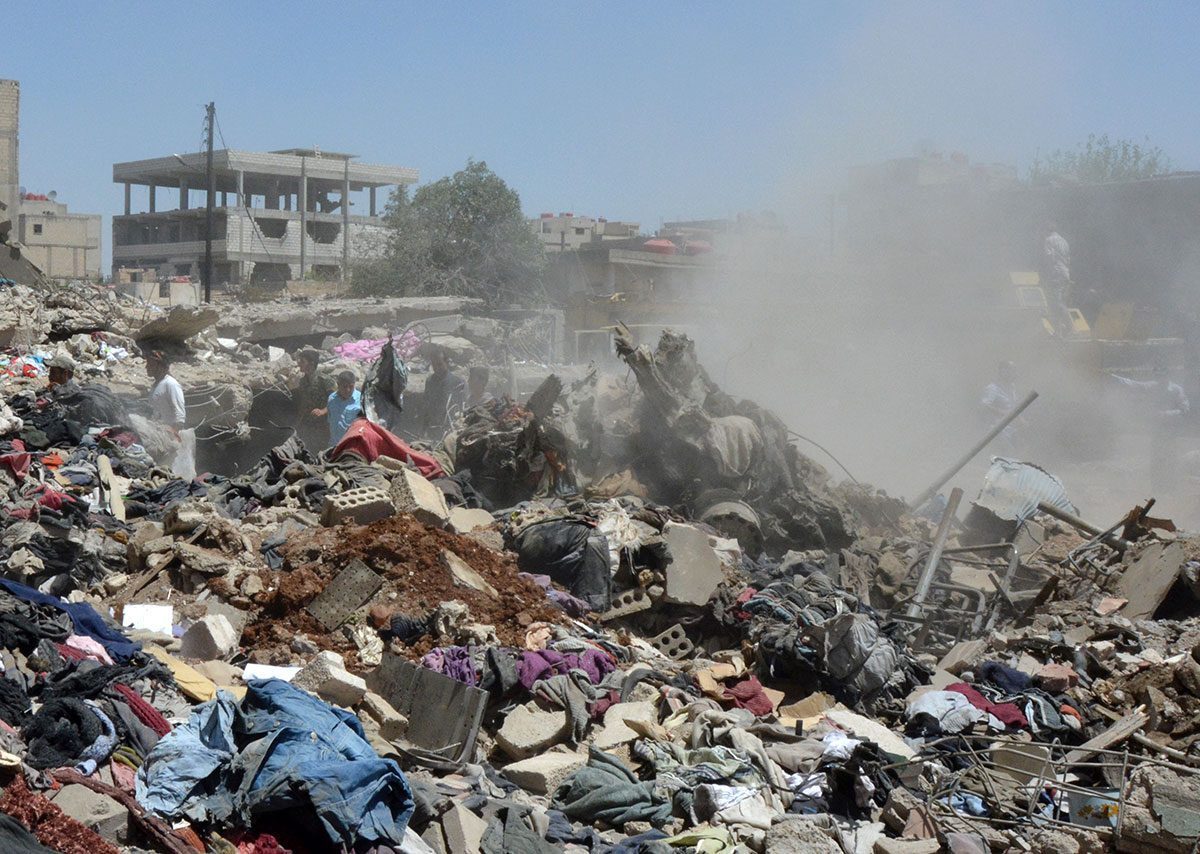
In a sign of the growing regional influence of Iran’s Revolutionary Guards, a close adviser to its foreign operations commander began his new role as ambassador to Iraq on Wednesday, state media reported.
Iraj Masjedi, a senior advisor to Quds commander Qasem Soleimani, landed in Baghdad Tuesday evening. He was greeted at the airport by Iraqi officials and described the two countries as “friends and brothers.”
Masjedi met with Iraq’s Foreign Minister Ibrahim al-Jaafari on Wednesday. The two discussed cooperation in the fight against terrorism.
“Iran’s standing beside the Iraqi nation and government in hard times has further expanded the relations between the two countries,” Iran’s Fars News reported Jaafari saying.
Masjedi said that his country wants a strong Iraq. “Iran wants an advanced, powerful, secure, and integrated Iraq and given this policy, Iran will stand by Iraq under any condition.”
Iran has sent dozens of military advisers and fighters to Iraq and neighboring Syria, where it is supporting Syrian president Bashar al-Assad.
Masjedi has more than 35 years’ experience in the Guards and a deep knowledge of Iraq, according to the Iranian Students’ News Agency (ISNA).
During the Iran-Iraq war in the 1980s, Masjedi was a commander at the Revolutionary Guards’ Ramazan base in Western Iran, which was a center for Iraqi opposition groups planning and carrying out military operations against Saddam Hussein’s forces on Iraqi soil, according to the Iranian judiciary’s news site Mizan Online.
The heads of some of those armed groups are now senior officials in Iraq.
Shiite militias and Kurdish issue
Since Islamic State took control of swathes of Iraq in 2014, Soleimani worked with top Iraqi security officials to fight the militant Islamist group, primarily through a Shi’ite volunteer force known as Popular Mobilization Units (PMU).
PMU has secured large areas west of Mosul and cut off ISIS routes between Mosul and Syria. Many in Sunni Mosul feared the force’s involvement in the campaign for the city because of sectarian tensions and reports of gross abuses of the Sunni population in Fallujah at the hands of the Shiite force.
US Lt. Gen. Stephen Townsend, commanding general of the anti-ISIS global coalition, said in December when Iraq’s parliament ruled to legitimize the PMU, that the Shiite force could help make Iraq more secure as long as they are not influenced by Iran.
Baghdad has praised Iran’s military assistance, which has “had an influential role in our victories in the war against Daesh,” Iraqi President Fuad Masum said in February, highlighting the role Quds commander Qasem Soleimani has played as a foreign military advisor. Appointing Masjedi as an ambassador may play a role in supporting these militias and widening their influence.
Appointing Masjedi as an ambassador may play a role in supporting these militias and widening their influence.
In addition, Reacting to news of Masjedi’s appointment in January, Kurdish officials were cautiously optimistic.
“He is seen as a more moderate figure within the Quds force and could have a positive impact on ties between Erbil and Tehran,” said Abdulla Akrayi, who is in charge of Kurdistan Regional Government (KRG) relations with neighboring Iran.
“He has been in touch with the Kurdish people for the past 30 years,” Akrayi added.
“Masjedi was a successful mediator between the Kurdistan Democratic Party (KDP) and the Patriotic Union of Kurdistan (PUK) in the 1990s,” said Bilal Sulaiman, a Kurdish party official who has previously served in Tehran and hopes for better ties after Masjedi’s appointment.
However, the Iranian Kurdish party PDKI is not so optimistic. “Iran’s new ambassador to Iraq, Iraj Masjedi, is responsible for assassinating more than 300 Kurdish activists in KRG,” the party tweeted on Wednesday.



